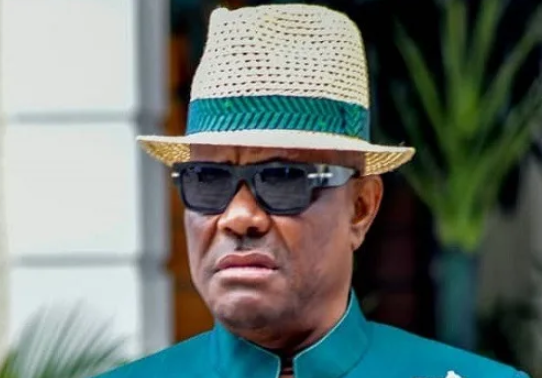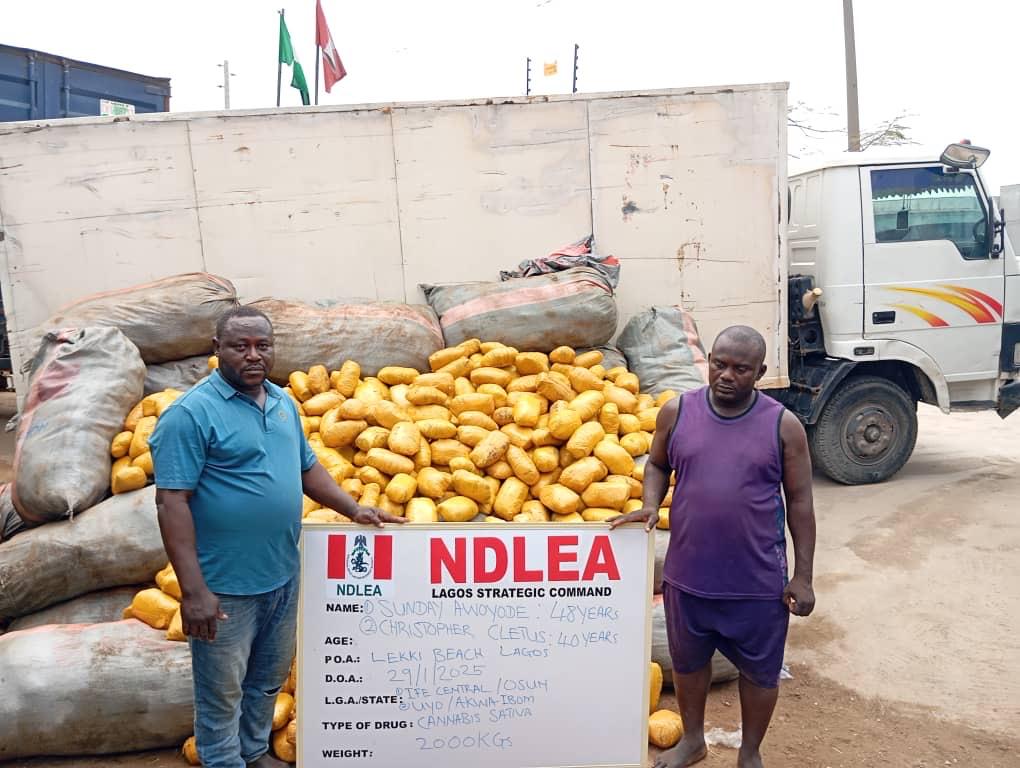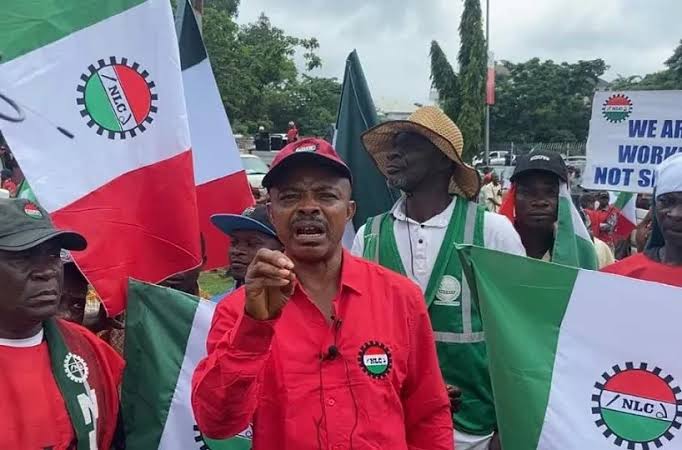News
Construction: Wike moves to help reduce cost in FCT

By Kayode Sanni-Arewa
The Federal Capital Territory(FCT), Minister of the Federal Capital Territory Administration (FCTA), Barr Nyesom Wike has moved to ensure that the cost of construction is reduced in the Territory.
He took this position during an inspection tour to Zeberced Limited Quarry Saturday in Abuja which is the largest in the whole of West Africa.
Wike, who was amazed at the scale of operations, described it as a game-changer for the construction industry in the region.
He said: “It’s a factory right here in the FCT, and the Managing Director has always invited me to see the facility, which is the biggest quarry in West Africa. I had never been here before, but today, I’ve taken the opportunity to assess the environment and see firsthand the incredible work being done,” Wike remarked during his tour of the factory.
The minister’s visit comes amidst rising construction costs in the capital city.
Wike stressed that the abundant availability of raw materials within the FCT should, in fact, lower construction expenses, particularly when it comes to aggregates used in building roads and infrastructure
He stated, “That shows that ordinarily, the cost of construction ought not to be very expensive, particularly in the FCT. Apart from the equipment that is imported, the raw material is available here. I wonder why contractors should be talking about the high cost of aggregates as if these materials are imported they’re made right here.”
With over 800 workers directly employed at the quarry, Wike commended the company’s contribution to job creation and local economic growth.
Advertisement
He further revealed that the same company is spearheading the development of an industrial park at Idu, a project the FCT Administration is fully supporting.
“I sent out a letter to the Ministry of Finance just yesterday to facilitate some tax credits, which will enable them to carry out the expansion of a single-carriage road to a double-carriage way, a project currently being handled by Salini Construction Company. We’re giving them all the necessary support to make this a reality,” Wike added.
The minister, visibly impressed by the quarry’s operations, expressed some concerns about the environmental impact but was reassured that all assessments were up to standard. “My only concern was the environmental impact assessments, but I’ve been assured that everything is in compliance. I’m very impressed with what I’ve seen here.”
Wike’s visit underscores the FCT Administration’s focus on driving industrial growth while encouraging local manufacturing to support infrastructure development.
With local resources available, he emphasized the need for contractors to re-evaluate pricing structures, particularly in the FCT, to reflect the advantages of sourcing materials locally.
Wike’s endorsement of the quarry and the upcoming industrial park at Idu marks a step towards a more sustainable and cost-efficient approach to construction in the capital, aligning with President Bola Tinubu’s administration’s vision for economic growth and infrastructural development.
News
7 days after ingesting illicit consignment, business man deported from Lebanon, undergoes surgery+photos

…nabbed at MMIA
. As NDLEA intercepts 2,000kg skunk coming from Ghana at Lagos beach
In a near death experience, a 59-year-old businessman Chijioke Nnanna Igbokwe has undergone a surgery, exploratory laparotomy, to let out 57 out of 81 pellets of cocaine stuck in his stomach after seven days of ingesting the illicit substance in Addis Ababa, Ethiopia.
Igbokwe was arrested by operatives of the National Drug Law Enforcement Agency, NDLEA, at the arrival hall of the Murtala Muhammed International Airport, MMIA, during the inward clearance of passengers on Ethiopian Airlines flight on Sunday 26th January 2025. He was promptly taken for body scan, which revealed illicit drugs in his system.
He was soon after taken into NDLEA custody for excretion observation.
Investigation revealed that Igbokwe who claims to be into cloth business at Arena, Oshodi area of Lagos, departed Lagos on 22nd January to Addis Ababa where he ingested the 81 wraps of cocaine the following day 23rd January and boarded a flight to Beirut, Lebanon to deliver the illicit consignment for a fee of $3,000.
Upon his arrival in Beirut, he said he was refused entry because he had less than $2,000, the amount required to grant him entry. He was then deported to Addis Ababa where he attempted excreting the illicit drugs but could not. He thereafter proceeded to Lagos on Saturday 25th January with the consignment in his bowel.
He was however arrested upon his arrival at the Lagos airport by NDLEA officers on 26th January.
After five days under excretion observation, he could only expel 24 pellets following initial medical intervention at the Agency’s medical facility and the Lagos State University Teaching Hospital (LASUTH) Ikeja.
With the clock ticking for him and the complication of other underlining medical conditions, the suspect was eventually admitted at the tertiary facility where he had to undergo exploratory laparotomy to extract the remaining 57 wraps of cocaine stuck in his stomach after his wife and brother endorsed the necessary consent forms on Thursday 30th January.
In all, a total of 81 pellets of the Class A drug with a gross weight of 1.943 kilograms were recovered from his stomach.
Meanwhile, NDLEA operatives in Lagos on Wednesday 29th January intercepted a consignment of 2,000 kilograms of Ghanaian Loud, a strain of cannabis produced in Ghana, at Lekki beach, where two suspects: Sunday Awoyede and Christopher Cletus attempted loading them into a truck. The suspects, the skunk shipment and the van were immediately taken into custody. Another suspect, Lawal Idris Olasunkanmi was also arrested same day with 55kg skunk during a raid at his base in Mushin area of Lagos.
Across the country, NDLEA Commands and formations continued their War Against Drug Abuse, WADA, sensitization lectures and advocacy visits to worship centres, schools, workplaces, palaces of traditional rulers and communities all through the past week. Instances include: WADA sensitization lecture to students and staff of Grand Light Model School, Ata Udosung, Akwa Ibom; Community Grammar School, Iganna, Iwajowa LGA, Oyo state; Ebute Afuye Primary School, Epe, Lagos state; Akwakuma Girls Secondary School, Owerri, Imo state; and Federal Government College, Kebbe, Sokoto state, while the Kogi state command of the Agency paid a WADA advocacy visit to Attah of Igala, HRH Mathew Opaluwa Oguche at his palace in Idah, among others.
While commending the officers and men of MMIA Strategic Command for their vigilance and professionalism in handling Chijioke Igbokwe’s case, Chairman/Chief Executive Officer of NDLEA, Brig. Gen. Mohamed Buba Marwa (Rtd) warned those involved in the illicit drug trade that they’re not only destroying the lives of others, but equally putting their own lives at great risk. He equally applauded the Lagos State Strategic Command for blocking the huge consignment of skunk from coming into the country. He recognized the concerted efforts of their compatriots in all the commands across the country for intensifying the WADA social advocacy lectures and sensitization activities to create a balance in drug supply and demand reduction efforts of the Agency .
News
48hrs to protest Telcos warn NLC not to become funeral rites performers of sector

Telecom operators in the country have warned the Nigerian Labour Congress, NLC, not to drive in the last nail in the coffin of an already ailing telecom sector with its planned nationwide protest on February 4.
The telcos, through their Chief Executive Officers and the Chairman of the umbrella body, the Association of Licensed Telecom Operators in Nigeria, ALTON, Engr Gbenga Adebayo, regretted that the NLC’s planned protest could worsen the problems of a sector already in coma.
At a town hall meeting in Victoria Island, Saturday evening, Adebayo said he had no doubt that the Labour union would not want to be addressed as the undertaker of a dead sector.
He expressed hope that NLC would listen to the voice of reason and suspend the protest.
He said: “The coming week will be crucial, but I trust that ongoing discussions at various levels will prevent an outcome we do not expect or desire.
“While I cannot say everything, I am aware that efforts are being made to ensure stability.
“That said, I sincerely hope no group will push the telecom sector to collapse.
“I hope Labour does not become the undertaker of the industry. If that happens, the consequences are clear; we will start heading downward. And once we do, recovery may become impossible.
“We initially made our request to the government based on thorough studies and reports.
“In fact, data suggests our sector requires far more than the 100% increase we originally requested. Despite this, we still accepted Federal governments 50%, hoping that in due time, following market demand, more would be approved.
“Let me illustrate this with a simple analogy: Remember COVID-19? When patients needed oxygen, they were given full tanks to survive.
“Now, imagine the telecom sector as a patient requiring 100 liters of oxygen. The government initially suggested 50 liters — just enough to sustain life and reassess later. But now, there is talk of reducing it further to just 10 liters.
“If a person who needs 100 liters is only given 10, we all know the inevitable outcome.
“The proposed 50 liters is already a lifeline, allowing us to survive, recover, and contribute to employment and economic growth. “Anything lower would be catastrophic — like a critically ill patient being denied the oxygen necessary to live beyond the next day.
“Discussions like these take different shapes, but we must remember, 30 years ago, we were in a similar situation, and we cannot afford to go back.
“The priority must be survival — for the sector and the broader economy.”
Adebayo urged the NLC and all other stakeholders to come together and ensure that the sector doesn’t end up in a position where survival is no longer an option.
Recall that on Friday, the Private Telecommunications & Communications Senior Staff Association of Nigeria, PTECSSAN, had publicly distanced itself from the NLC protest, saying that the hike is necessary to prevent the industry’s collapse.
In a letter addressed to the NLC, signed by Okonu Abdullahi, General Secretary of PTECSSAN, the group stated emphatically that the Congress had acted “in error” without consulting them.
“It is our firm belief that the Congress leadership has acted in error in taking these decisions without prior consultation with our Union that operates in the sector,” the letter stated.
PTECSSAN emphasized the dire financial straits facing telecom operators, citing the removal of fuel subsidies and the fluctuating exchange rate as key factors driving up operational costs.
It also highlighted the increase in the price of Automated Gas Oil, AGO (desiel), used to power base stations, from N842.25 to an average of N1,441.28 since May 2023.
They also pointed to the soaring cost of petrol, which has risen from N198 to over N1,030 in some areas, impacting the mobility of field engineers responsible for maintaining these crucial sites.
“Therefore, there is no way out of high running cost on maintenance of the telecommunications sites,” the letter asserted.
PTECSSAN further explained that the fluctuating exchange rate, with the Naira depreciating from N460 to approximately N1,700 against the dollar, has made importing essential telecom equipment significantly more expensive.
“Putting it in the right perspective as done previously, the Naira was exchanging for N460 to 1 dollar before May 2023 and today it is around N1,700 to 1 dollar,” the letter explained.
News
FG to spend $600m annually on electricity subsidy

The Federal Government has announced plans to introduce an annual electricity subsidy of $600m for all customers from 2025 as part of efforts to reform the power sector.
The subsidy, expected to last until 2027, aims to bridge the gap between cost-reflective tariffs and regulated electricity rates, while the government works towards eliminating the metering deficit and enhancing the financial sustainability of power distribution companies.
According to Nigeria’s Energy Compact document obtained by Sunday PUNCH, the initiative is part of the National Energy Compact and aligns with Nigeria’s broader electrification and clean energy transition plans.
Nigeria, alongside Côte d’Ivoire, Zambia, and nine other African countries, presented its energy compact at a two-day summit in Tanzania, with a focused on innovative energy solutions.
However, the policy is a temporary measure designed to ensure affordability while the government progressively moves towards full cost-reflective tariffs.
The document noted that the subsidy might take different forms, including a flat monthly subsidy per electricity consumer or a subsidy on the first 50 kilowatt-hours consumed each month.
This approach intends to reduce the regressivity of previous subsidies, where a significant portion benefited wealthier households.
By 2027, the government plans to introduce a social tariff to protect low-income and vulnerable customers once the broader cost-reflective framework is fully implemented.
The document noted the Federal Government’s trajectory to full cost-reflectivity included a “$600m per year subsidy in 2025 to 2027 (while metering gap is being closed), and then fully CRT except for social tariff for vulnerable customers.”
It added, “In order to decrease the regressivity of electricity subsidies, move towards a full cost reflective tariff system which includes a limited and uniform subsidy for all customers in 2025 while the metering gap is being closed. This scheme can take the form of a uniform monthly subsidy per customer, or the first 50 kWh per month being subsidised.”
A key focus of the reform is closing Nigeria’s metering gap, which currently stands at approximately seven million unmetered electricity end-users.
The government outlined a plan to install 1.5 million smart meters in 2025, four million in 2026, and 1.5 million in 2027.
The closure of the metering gap is expected to minimise losses in the sector, improve revenue collection efficiency, and ensure that tariffs are aligned with actual consumption, thereby reducing the need for future subsidies.
The electricity sector has struggled with financial sustainability due to high technical and commercial losses, low tariff recovery rates, and liquidity constraints.
Despite efforts under the Power Sector Recovery Programme, tariff shortfalls reached N650bn in 2023 and are expected to rise further in 2024, potentially exceeding N2.2tn.
The subsidy scheme would provide temporary relief while ensuring that distribution companies meet their financial obligations to power generation companies and the Transmission Company of Nigeria.
-

 Politics20 hours ago
Politics20 hours agoPDP, LP Want Suspended Lagos Speaker, Obasa
-

 News20 hours ago
News20 hours agoColombia Offers To Pay For Citizens’ Deportation From US
-

 News20 hours ago
News20 hours agoSEE Current Exchange Rate: U.S. Dollar to Nigerian Naira (Black Market & CBN Rates)
-

 News20 hours ago
News20 hours agoJust in: Abducted Abia INEC Chairman, Prof. Chima regains freedom
-

 News20 hours ago
News20 hours agoMy husband caught red handed poisoning my food, refuses to eat – Wife raises alarm
-

 News20 hours ago
News20 hours agoUTME 2025: Why we postponed registration —JAMB gives reasons
-

 News19 hours ago
News19 hours agoSAD! Former President of Germany Dies
-

 News21 hours ago
News21 hours agoHardship: Man uses eba as birthday cake










